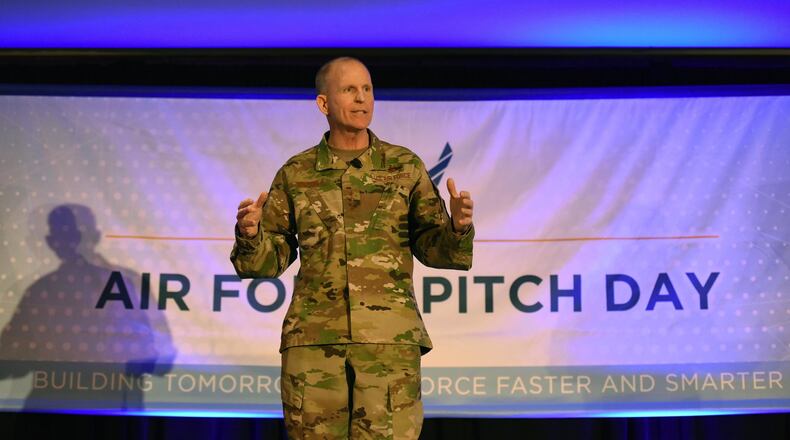The companies receiving contracts are all small, start-up businesses with innovative ideas to develop, which can meet national security challenges, or provide game-changing expansions in capability.
More than 800 companies submitted proposals for evaluation during this contracting sprint.
Approximately 320 of the contracts awarded were Phase I awards, giving each small business initial funding and three months to perform a feasibility study and customer discovery of their technology – to ensure that the product meets the needs of the warfighter. Another 100 of the contracts awarded were Phase II awards, which tasks each company to provide a working prototype of their new technology.
In addition to an Air Force contract award, each company is provided information on obtaining private sector matching funds via angel investors and venture capital organizations, which can boost each company’s initial operating budget.
This was the Air Force’s third contracting sprint. The first contracting sprint in October 2018 awarded approximately 100 contracts. A second contracting sprint followed in February, awarding 150 contracts.
Those successes drove both demand and opportunity, said Ryan Helbach, chief intrapreneur of the Air Force Research Laboratory.
“The increase in volume is largely the due to the successes that we’d seen from previous sprints as well as our efforts to encourage more companies that don’t normally work with AF to work with us. These small businesses are basically getting the message that contracting sprints are a great way to work with Air Force,” Helbach said.
To review the more than 800 proposals submitted for this contracting sprint, the Air Force pulled together a team of more than 70 personnel from across the Air Force’s contracting, logistics and weapons systems directorates. Contracting sprint personnel came from: Wright Patterson AFB; Joint Base San Antonio- Lackland, Texas; Scott AFB, Illinois; Kirtland AFB, New Mexico; Boston, Hanscom AFB, Mass.; Spangdahlem Air Base, Germany; RAF Alconbury, United Kingdom; Edwards AFB, California; Fairchild AFB, Washington; Los Angeles AFB, California; Shepherd AFB, Texas; Rome, New York; Dover AFB, Delaware; Joint Base Charleston, South Carolina; Joint Base Elmendorf Richardson, Alaska; MacDill AFB, Florida; Eielson AFB, Alaska; McConnell AFB, Kansas; Air Force Academy, Colorado; Tyndall AFB, Florida; Austin, Texas; and Hill AFB, Utah.
The Army and Navy each sent several representatives to the event, to observe and evaluate the potential of contracting sprints for their respective services.
Meanwhile, the Air Force is moving ahead and planning its next contracting sprint between late November and early December. In addition, the Air Force is planning eight Pitch Days as well, which are smaller contracting sprints that focus on a specific area of Air Force systems. Upcoming Pitch Day topics include space, simulators, hypersonics, airborne communications, rapid sustainment, mobility and training aircraft, and more.
More information on the next contracting sprints and deadlines to submit proposals is available at www.afsbirsttr.af.mil/program/Overview or www.AFWERX.af.mil/sbir.html. Information on upcoming Air Force Pitch Days is available at www.afsbirsttr.af.mil/AF-Pitch-Day/How-to-submit/.
About the Author
